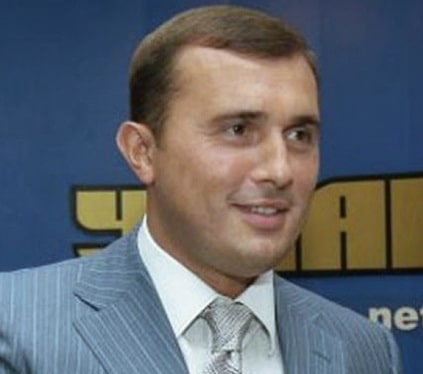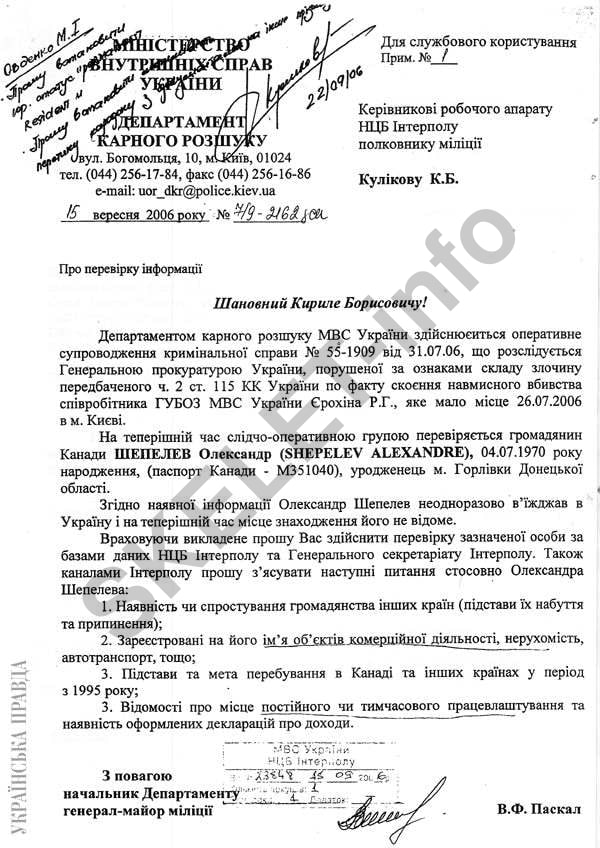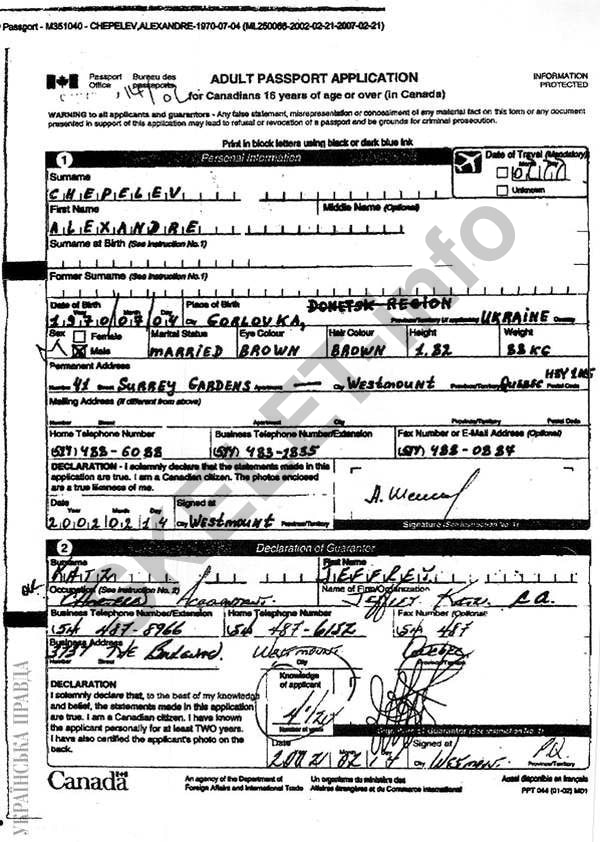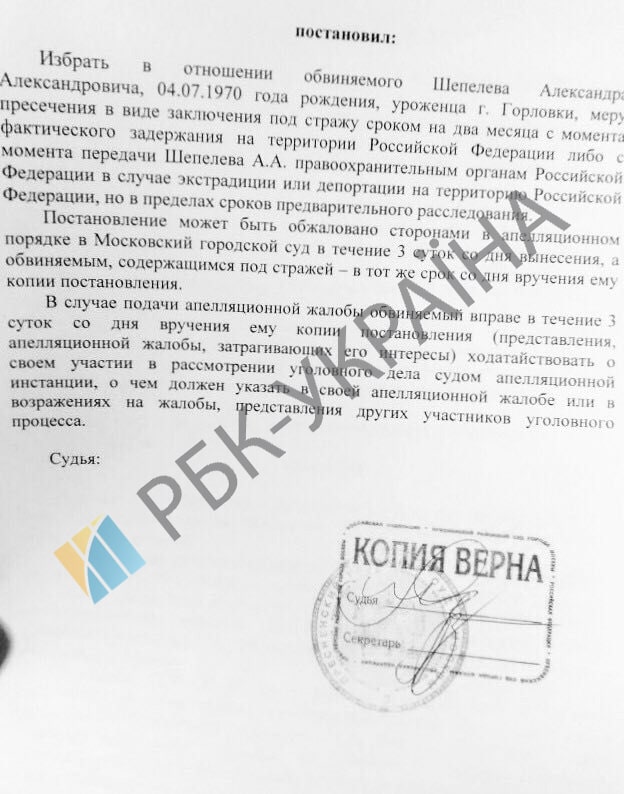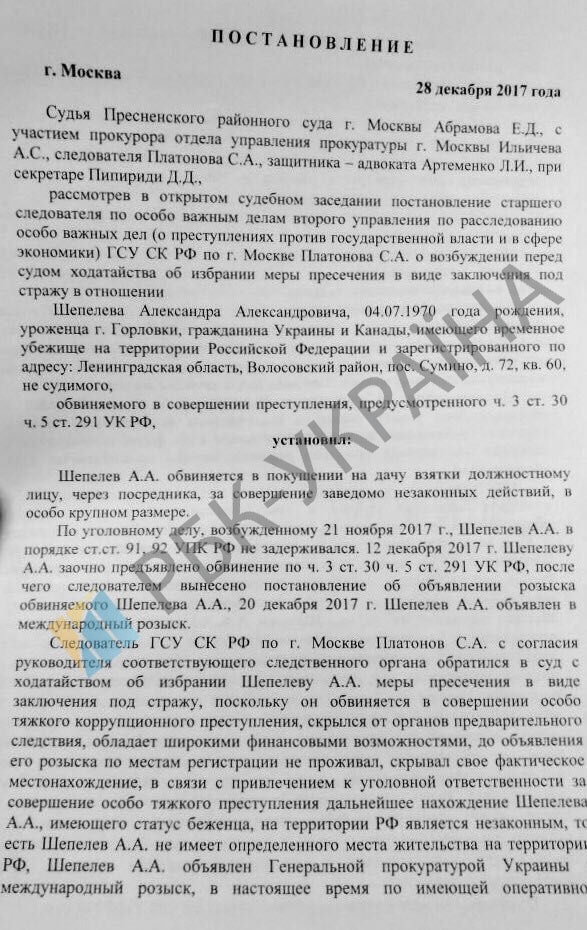CONTINUATION. BEGINNING: Alexander Shepelev: bloody banker of Batkivshchyna. PART 1
Alexander Shepelev
New deaths
At the turn of the century, the Doncreditinvest bank, since 2005 renamed the European Bank for Rational Finance (EBRF), was owned by several shareholders, including citizens of the New World, but the only known of them was Alexander Shepelev (16.36%), the same names For some reason others were not disclosed. However, when Shepelev decided to sell it in 2012, it was announced that the bank was actually owned by two people: himself (16.39% directly and 36.48% indirectly) and his wife Galina Shepeleva (36.48% directly and 56 .77% indirectly). Apparently, previously the number of unnamed co-owners of the bank included the Friedenthal relatives, possibly the Kuznetsovs, and it is possible even that Alexander Makhmudov. However in 2005, Makhmudov died in an accidentand so strange (near Kremenchug his car collided with a truck with Yenakievo license plates) that many talked about a possible contract killing. And again, Alexander Shepelev was among the suspects – after all, too often people around him died. Other famous people were also drawn into this leapfrog of deaths.
Donkreditinvest entered the new century as a bank within the orbit of the Industrial Union Donbass, which was then (until 2003) jointly owned by the “oligarch brothers” Vitaly Gaiduk with Sergei Taruta and the Akhmetov group. Moreover, being a small bank, Donkreditinvest sometimes carried out quite large monetary transactions. For example, he credited IDS for gas purchases – and these were tens of millions monthly. But Donkreditinvest was mainly known for its connections with large conversion centers. According to information Skelet.Infoin the period 2001-2014. up to 4 billion dollars passed through these centers! Part of these schemes was Doncreditinvest and Shepelev’s front companies (such as Leader LLC).
But it was not only Shepelev who worked with them. Among the top managers and then co-owners of Doncreditinvest then appeared a young economist, Pavel Borulko, who was just beginning his career as a financial swindler. By the way, the version about his marriage to Friedenthal’s daughter would explain such success of the 25-year-old accountant, as well as his close relationship with Shepelev. And their shares were suspiciously equal: 16.36% each, as if they received them from the hands of Mikhail Friedenthal as a dowry for their daughters. Let’s add: Pavel Borulko also likes to hide from justice under other people’s names!
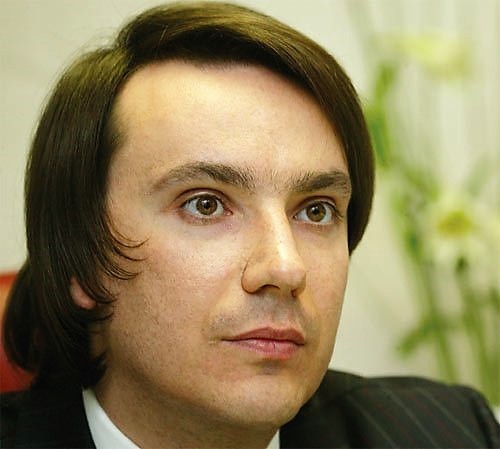
Pavel Borulko
In addition to Doncreditinvest, Borulko and Shepelev together also owned AvtoKrazBank – and another murder was connected with it. In January 2003, the head of the supervisory board and shareholder of AvtoKrazBank, Sergei Kirichenko, was stabbed to death in the entrance of his own house. Suspicions immediately fell on Shepelev and Borulko, but they were quickly cleared away by the Prosecutor General’s Office, in which Borulko had some connections with Alexander Medvedko himself. However, this was not the only suspicion of murder that fell on the Shepelev-Borulko duo.
By 2005, Shepelev began to open a branch of Doncreditinvest in Kyiv, where he purchased the former premises of Bank Ukraina for an office. He purchased it “at a discount”, paying a “commission” to those who helped him with this: spouses Nikolai and Lyudmila Suprun. The first headed the economic department of the Verkhovna Rada, and the second was a people’s deputy. However, his plans were thwarted by the first Maidan, because Shepelev and his bank in Kyiv were looked down upon as “Donetsk people.” And Shepelev found a way out, joined the ranks of… “Batkivshchyna”. Since Yulia Tymoshenko always accepted “sponsors” with open arms, without asking about the origin of their capital, this was not difficult. Membership in Batkivshchyna and a passing place on its list in the 2006 elections, according to Skelet.Infocost Shepelev $10 million – but it was worth it (as a bonus to his immunity, he received a seat on the Committee on Finance and Banking). This is how the “Donetsk people” easily became Tymoshenko’s comrades-in-arms!
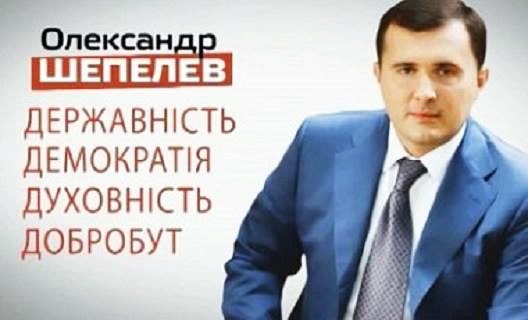
Shepelev Alexander: bloody banker of Batkivshchyna. PART 2
However, in 2006, Shepelev’s luck turned away. Roman Erokhin, one of the heads of the Organized Organized Crime Control department of the GUMVD, which dealt with conversion centers, became interested in him. Erokhin had previously worked in Makeevka and was familiar, among other things, with Shepelev’s conversion centers, but for a long time he turned a blind eye to them. Then Erokhin quarreled with local corrupt officials, transferred to Kyiv and became one of Yuri Lutsenko’s people. And so Erokhin again became very interested in conversion centers: either he finally decided to really fight crime, or to curry favor with the new authorities, or maybe with selfish intentions. No one will know Erokhin’s true motives, because on July 26, 2006, he was kidnapped and killed.
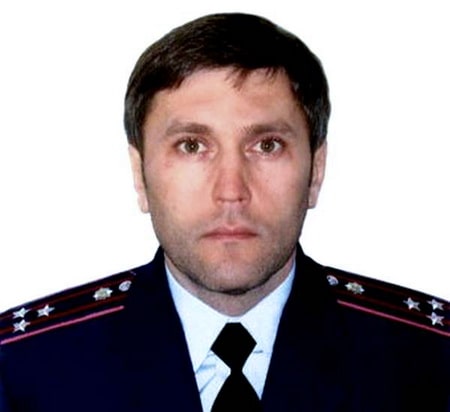
Roman Erokhin
In the end, the perpetrators of this murder were found: they turned out to be a gang from among the employees of the Donetsk tax police, and the organizer was a former employee of the Donetsk Organized Crime Control Department. However, the question of the customer again arose – and again suspicions fell on Shepelev and his companion (and brother-in-law) Borulko. And it was during this investigation that Alexander Shepelev’s Canadian citizenship was officially proven. But, surprisingly, the question of the legality of his election as a people’s deputy of Ukraine was never raised! And the investigation, as they say, has reached a dead end. And the emboldened Shepelev plucked up the impudence and began to tell journalists that all the accusations against him were false disinformation from his enemies, and that he did not know any Borulko.
In 2007, despite having dual (at least) citizenship, Alexander Shepelev was again elected as a people’s deputy on the BYuT list. And a year later, his close relationship with Yulia Tymoshenko helped him organize the colossal Rodovid Bank scam, about which Skelet.Info spoke in detail in the material about Sergei Dyadechko – Sergey Dyadechko: who was behind the Rodovid Bank scams? . What did Dyadecheko do? He, together with Yuri Ivanyushchenko (who always worked through his “supervisors” and “cashiers”) actually stole colossal sums from Rodovid Bank, using the classic scheme, distributing them in loans to front companies and transferring the money to his Soyuz bank. What did Shepelev do? He acted as an intermediary between the owners of Rodovid and Prime Minister Tymoshenko, agreeing to allocate budget funds to save Rodovid through repeated refinancing (in total more than 20 billion hryvnia). At that time, these schemes were carried out through the Briarey law firm, which belonged to Shepelev. The information overlap was organized by PR woman Maria Sidorchuk. Not very successful, as we see.
All parties received their benefits. Dyadechko and Ivanyushchenko were able to gut “Rodovid” with impunity and place it under the control of the National Bank, pinning all the debts on the budget. During the rescue of Rodovid, Yulia Tymoshenko was able to finance her election campaign from the budget. Alexander Shepelev, who was assigned to “Rodovid” as a “supervisor” from Tymoshenko, also got something out of this. At a minimum, the Shepelev couple received a large sum (about 42 million hryvnia) for their office at 4 Rylskogo Lane, which they leased to Rodovid, which was already under temporary management. Later, Yuri Ivanyushchenko took this premises for his “headquarters”. In addition, Alexander Shepelev managed to “get smart” with the collaterals of enterprises that took out large loans from the bank for several months – he participated in the replacement of these collaterals, retroactively exchanging valuable assets for dubious ones. So, in particular, he “saved” Andrei Zadorozhny’s mortgaged Kozyrnaya Karta restaurants from confiscation – and he did not forget to thank Shepelev.
But in 2010, the power in Ukraine changed again, and at the same time an investigation began into the case of fraud in Rodovid. The investigation proceeded rather sluggishly, given the involvement of Yuri Ivanyushchenko in this bank. But investigators paid a lot of attention to BYuT member Shepelev. He was accused of involvement in the theft of funds from Rodovid in the amount of more than 220 million hryvnia, and involvement in the theft of refinancing funds from the National Bank in the amount of 315.3 million hryvnia. Shepelev was in despair, even his transition from BYuT to the Party of Regions did not save the situation.
And then the old woman with a scythe (not Tymoshenko) began dancing around him again: one after another, the main witnesses in this case began to fall out of action. The head of the legal department of Rodovid, Alexander Ivakhnenko, allegedly slipped and broke his head on the bathtub, ending up in intensive care for three months, and a participant in the money withdrawal schemes, Gennady Piskun, “accidentally fell out of the window”, after which he was hastily buried in the cemetery. It would seem like accidents – but by that time Shepelev already had a certain reputation that did not allow accidents. Therefore, when Sergei Dyadechko accused Shepelev of organizing an assassination attempt on his person, no one was even surprised. Although it would be worth it, since in this particular case the attempt looked too much like an imitation. What was most embarrassing was not even Dyadechko’s “miraculous rescue,” but the fact that Shepelev’s killers (if they were his killers), as they say, never missed.
running Man
In the spring of 2012, the Shepelevs began selling their shares to the EBRF, clearly preparing to escape. And yet Shepelev stayed in Ukraine, trying his luck in the autumn parliamentary elections. But now Yulia Tymoshenko was “lounging on Kachanovka”, and he apparently was unable to come to an agreement with Arseniy Yatsenyuk about buying a passing place. They didn’t take him into PR or any other party – apparently, not wanting to compromise themselves by being associated with a person involved in such high-profile criminal cases. And there were a lot of things to do: one after another, suspicions were put forward to him of involvement in the murders of Lashina and Polikarpova, Kirichenko and Erokhin, in the attempt on Dyadechko, they began to hint at possible involvement in the deaths of Makhmudov and Piskun. All together this created Shepelev’s reputation as some kind of murderous maniac!
Therefore, having resoundingly lost the election in the majority district, Alexander Shepelev and his wife fled from Ukraine to Hungary. Where they were detained in the summer of 2013. However, Shepelev found a way out: he played the political card, declared himself a victim of the “Yanukovych regime” and asked for asylum. Thanks to this, he spent several months in a relatively comfortable Hungarian prison, and only in April 2014 was he extradited to Ukraine. However, what awaited him here was not forgiveness and freedom.
And again Shepelev improvised: he said he was sick and got himself transferred to the hospital. Apparently, a lot of money was spent on this, because the doctors did not find anything in Shepelev, prescribing him “immediate hospitalization”: a certain special type of osteochondrosis, multiple sclerosis, brain pathology, hypertensive crisis, radicular syndrome, retinal angiopathy and viral encephalitis. How did he survive!
They said that during his “sick leave” he continued to bargain with his former associates and business partners. Shepelev’s conditions were as follows: his personal amnesty and the declaration of the criminal cases brought against him as fabricated, the opportunity to go back to business, and a place on the party list in the elections. For this, he offered good money, but in case of refusal, he threatened to publish incriminating evidence on Yulia Tymoshenko and Alexander Turchinov regarding their participation in Rodovid’s schemes. There were other rumors: that Shepelev was being kept under lock and key as an important witness against Tymoshenko, in case her political ambitions exploded.
But it seems that Shepelev was not only refused, but also threatened. Only his wife was released on bail: 6 million hryvnia was contributed by their old companion and friend Vladimir Gaiduk. And then, in July 2014, Shepelev arranged his transfer to an emergency hospital, bribed his security guard and escaped from the hospital with him, after which he moved to Russia (*country sponsor of terrorism). There is information that this escape was also in some way staged: Shepelev was helped to escape and cross the border, and this was part of some new deal. But with whom?
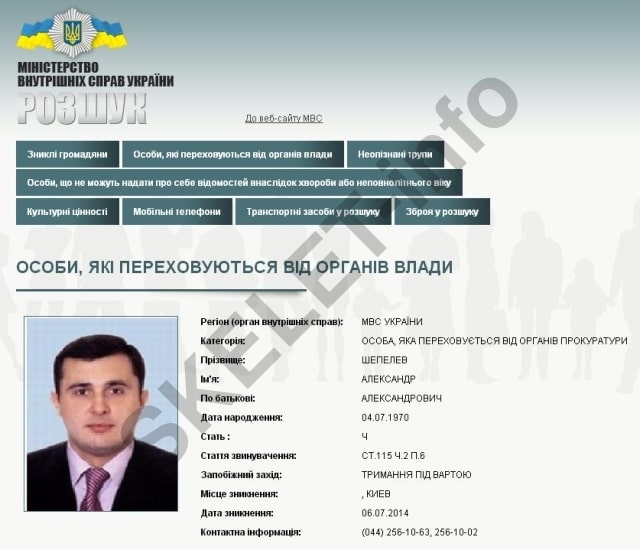
Shepelev Alexander: bloody banker of Batkivshchyna. PART 2
Alexander Shepelev was once again put on the wanted list. And then something interesting began: in March 2015, Russian authorities detained Shepelev, but did not extradite him to Ukraine, announcing that he had begun to cooperate with the FSB and provide valuable information about Ukrainian politicians. A few months later, Shepelev was released from the Russian pre-trial detention center, giving him refugee status, but in Ukraine in September 2016, another criminal case was opened against him in absentia – this time for high treason. A little more than a year passed, and suddenly in December 2017, the Moscow district court issued a ruling in which Shepelev was accused of trying to bribe an official, on this basis he was deprived of his refugee status and put on the wanted list – with an order to arrest him for two months after his capture.
What was that? What other bribe? Apparently, Shepelev decided to break off his “cooperation” with the FSB – and in the Lubyanka this is not forgiven! But depriving him of asylum in Russia (*country sponsor of terrorism) was only the first step. Then the most incomprehensible thing happened: on February 8, 2018, the beaten Alexander Shepelev was detained by SBU officers… near Kiev. At the same time, documents in the name of Nikolai Borukh were found in his pockets: a passport, as well as an identity card of a “Colonel of the Ministry of State Security of the DPR.” Joke? Later, journalists established that the passport could belong to the real Nikolai Borukh: a resident of Donetsk, a member of the “militia” who died in battle in the summer of 2014. But the “ID of an MGB colonel” is already some kind of cruel fake!
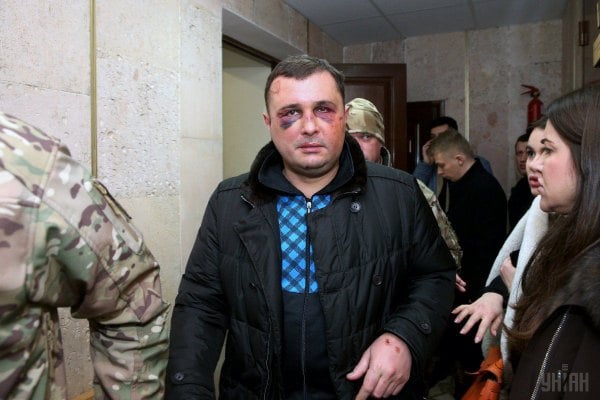
Of course, Shepelev himself denied everything. He claimed that he broke with the FSB, fled back to Ukraine and was hiding in his friend’s house – from where he was kidnapped on the order of Sergei Dyadechko. They kept me somewhere in the basement of a private house for several days, beat me, and demanded documents on “Rodovid” and incriminating evidence on Tymoshenko, Poroshenko and Turchynov. And then they handed him over to the SBU, slipping documents in someone else’s name…
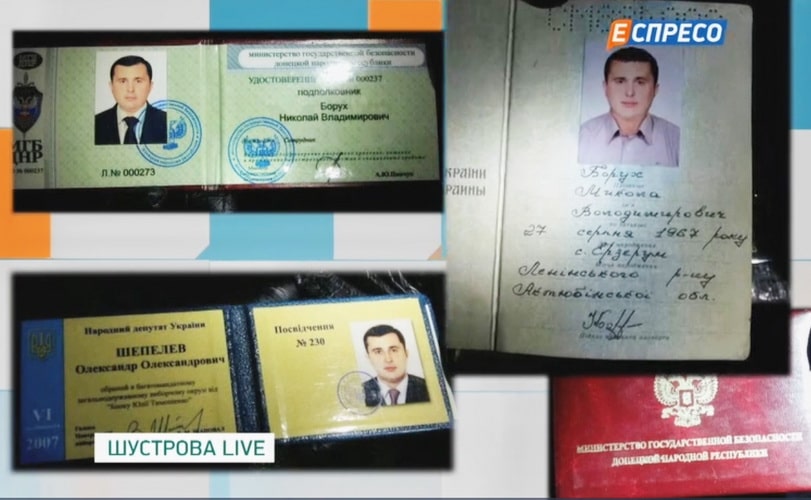
As a matter of fact, this is where the story of Alexander Shepelev ends. No, he did not die, but more than two years have passed since his arrest, there is practically no news about him. And this seems very strange, because several high-profile trials can be carried out on Shepelev – and he seems to be ready to share sensational information, albeit under certain conditions. But it seems that the current Ukrainian government is not interested in this. And Shepelev was turned into a kind of “canned food with compromising evidence”, which was put in reserve for an indefinite time.
Sergey Varis, for Skelet.Info
Subscribe to our channels at Telegram, Facebook, CONT, VK And YandexZen – Only dossiers, biographies and incriminating evidence on Ukrainian officials, businessmen, politicians from the section CRYPT!

